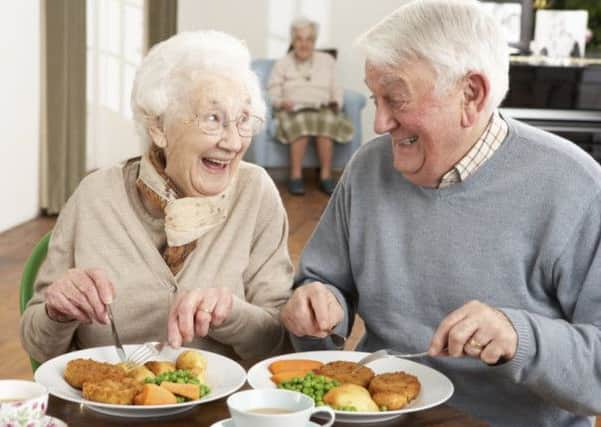Weightlifting and protein shakes could be future of OAP health


Adults over the age of 65 should also take part in high-density exercise, such as weightlifting, to increase their chances of living a longer and healthier life.
The scientists, at the University of Stirling, say current nutrition guidelines should be re-drawn for older adults as they are based on data taken from much younger people.
Advertisement
Hide AdAdvertisement
Hide AdThey say people over the age of 65 need 50-90 per cent more protein with each meal than younger people to prevent sarcopenia – a gradual loss of muscle mass common in older age that can lead to physical disability. They also say physical activity guidelines should recommend more vigorous exercises for OAPs to discourage prolonged periods of muscle disuse.
Dr Oliver Witard, senior lecturer in health and exercise science at the University of Stirling, said: “The government recommendations are focused on telling us what our minimum protein intake should be and are not tailored towards our optimal intake.
“The RDA is also based on data taken from young adults, not older adults. For young adults of typical body size, the recommended 20-25g of protein per meal is sufficient, but older adults may require at least upwards of 30g – and more towards 40g of protein per meal.
“The current physical activity recommendations are broad – essentially 30 minutes of exercise, five days a week, which includes gentle exercise, such as gardening or walking.
Advertisement
Hide AdAdvertisement
Hide Ad“Added to these general recommendations, we advocate the inclusion of resistance training – for example weightlifting, which is very important for maintaining muscle mass. Also high-intensity interval training.”
Nutritionist Emma Conroy agreed with the findings, saying: “What may be adequate for a healthy, young adult cannot be assumed to have the same effect in the elderly, and indeed it seems that larger amounts of protein are needed in an elderly person to build muscle or protect existing muscle tissue.
“For some individuals, there will be a place for a protein powders, to add to meals, or have as a protein drink.”